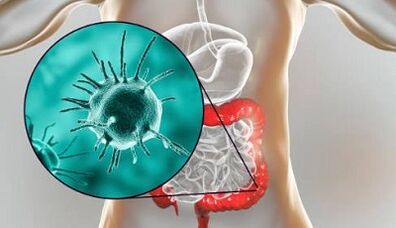
Parasitic disease is a large group of diseases caused by helminths, some arthropods and protozoa.
Despite all the achievements of modern medical and hygiene, statistics, about 90% of people around the world face this pathology at least in their lives.How to suspect illnesses and tests what to take for parasites can be found in this article.
The type of parasite
Parasites are organisms that survive the important activities of living beings.Set in the human body, during their growth and reproduction leading to micro deficiency, vitamins, proteins and other nutrients.Both can lead to relapse and exacerbate chronic pathology, and cause damage to their own internal organs.
There are the following types of parasites that can cause disease in humans:
- protozoa (amoeba, lamblia);
- pathogenic microorganisms (chlamydia, mycoplasma and others);
- Helminths (circular worms, pinworms, bovine and pig tape, etc.);
- Parasite arthropods (pest sores, demodex).
The main feature of the pathology that causes it is a long or low -end course.Parasites skillfully hide their existence, try to "squeeze everything out of the host body" until the reserves are depleted and the organs or tissues are serious.
Symptoms of parasitic disease
Parasitic pathology most often means helminthiases - a disease caused by the presence of worms in the body.In most cases, they occur in children, however, they can also grow in adults if hygiene rules are ignored.For a long time after the infection, they do not show themselves in any way, or are accompanied by a fine symptoms that are often unknowingly.

Each disease is characterized by certain features, but there are also common signs:
- Headache, dizziness, increased weakness and fatigue.This manifestation is a result of intoxication due to poisoning with parasitic waste products.
- Exacerbation of bronchial asthma and allergic rhinitis, dermatitis, urticaria.They arise due to increased sensitivity to helminth cells and their excreted products.
- Dysfunction of the digestive system (abdominal pain, nausea, vomiting, heartburn, constipation and diarrhea).Parasitic helminths in the intestinal lumen lead to inflammation and intestinal obstruction due to obstruction of the intestinal lumen.
- Anemia, vitamin deficiency, weight loss.Occurs due to deficiency of protein, vitamins and micro, decreased hormone production.
- Sleep disorders, chronic fatigue, irritation, anxiety, muscle and joint pain.
To detect most types of helminths, it is necessary to conduct stool tests or donate blood for the presence of certain antibodies.You can undergo a test at your home, after entering the hospital, as well as any private lab.Some medical centers offer a broad examination, where you can diagnose the presence or absence of several types of parasites in the body.
Tests for parasites

The attending physician will tell you what test you should take if you suspect parasitic disease based on complaints, medical history and clinical manifestations of the disease.
Diagnosis begins with a general blood test.The most characteristic change in helminthiasis is:
- Reduces hemoglobin levels and decreases the number of red blood cells (caused by protein and iron deficiency).
- Increased number of leukocytes, ESR acceleration (is a sign of inflammation of the internal organs, especially the gastrointestinal tract).
- Increased eosinophils (signs of allergic characteristics that occur in response to the irritating effects of helminth waste products).
For a more accurate diagnosis, stool analysis for eggs and helminth binding is used.When examining stools, you can detect pathogens of enterobiasis, ascariasis, hymenolipedosis, and also detect the presence of protozoan microorganisms (Giardia).
It is important to remember that with one test, the probability of detecting worm eggs in the stool is 30%.Therefore, to explain the diagnosis, with the first negative results, the study was conducted twice with 2-4 days.
To improve the accuracy of the study, it is important to carefully prepare for the stool for analysis.Biological materials should only be collected in special sterile containers, which can be purchased at pharmacies.A few days before the test, you should stop eating stained foods (beets, red berries, exotic fruits, sugars and drinks with dyes), and do not use laxatives or rectal suppositories.
Enzyme immunoassay
Using ELISA analysis in adults and children, it is possible to detect antibodies produced by the human body in response to the presence of foreign objects in it.To do this, blood is taken from the veins, where, in the laboratory, IgG antibodies specifically for Giardia, Trichomonas, Pigs and Cow Tape, Trichinella, Echinococcus, Toxocara, Ascaris and Pinworms can be detected.By using this study, you can detect the presence of almost all parasites in the human body.
Ready for this study is not difficult.Tests must be taken in the morning, on an empty stomach after 8-10 hours fast.On the eve of the study, it is advisable not to take antibacterial and antihistamine medications, as well as not eat allergic foods (honey, seafood, exotic fruits and red berries, nuts).Shortly before donating blood, experts recommend resting in the laboratory for 10-15 minutes.
The results of the study are known after 1-2 days.These studies are conducted as a major diagnosis and as a control over treatment.
Timely detection and effective modern treatment for parasitic disease allows you to avoid harmful complications to health.



























